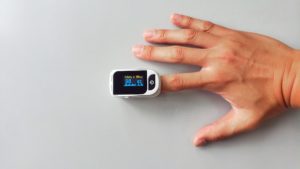When it comes to the novel Covid-19 virus, there are still many unknowns. Scientists are working tirelessly to learn as much as they can about the virus, including how it affects people in different ways. One of those ways is recovery time, as some patients seem to recover right away, while others still experience symptoms for months after the illness. Those patients are being termed “long-haulers,” and studies have shown that it could take over a year for them to fully go back to normal.
Some long-haulers are now being diagnosed with an obscure syndrome called postural orthostatic tachycardia syndrome, also known as POTS. POTS is an autonomic nervous system disorder that can be triggered by many things, such as infections or viruses. Doctors have suggested that Covid-19 sparks POTS in some patients, causing symptoms like extremely fast heart rate, dizziness, and debilitating fatigue.
Fortunately, for those being diagnosed with POTS, there are some treatment protocols already in place. Treatments include slow, guided return to physical activity, the use of compression stockings or abdominal compression to prevent blood pooling, upping salt and fluid intake to increase blood pressure, and using medication to regulate blood pressure, blood volume, and heart rate. However, pre-Covid POTS patients have not always responded to treatments, and it’s extremely unlikely for POTS to fully go away, even when treatments work. Those diagnosed with POTS after Covid are having a particularly hard time getting back to physical activity, and it’s still not clear why.
There are a host of symptoms associated with POTS:
- Extreme heart rate increases
- Fluctuations in blood pressure
- Trouble exercising
- Lightheadedness/dizziness upon standing
- Brain fog/concentration issues
- Headache
- Shortness of breath
- Muscle aches
- Nerve damage in the hands or feet, causing pain, numbness, or tingling
- Gastrointestinal issues
There is not enough data yet for scientists to determine how many people will suffer with POTS after contracting the Covid-19 virus. Johns Hopkins, who has had a POTS clinic for the past three years, recently opened up a clinic designated for patients with POTS after Covid. The director, Tae Chung, along with doctors across the country, have seen more and more cases in which Covid long-haulers are showing POTS-like syndromes.
Symptoms associated with post-Covid POTS can be very debilitating. One patient, Tracy Tobiczyk, has been on medical leave since she developed Covid last spring. She was admitted to the University of Michigan Medical Center over the summer after weeks of seeing an alarmingly elevated heart rate, even at rest. She was there diagnosed with POTS.
Before Covid, Tobiczyk lived an active lifestyle, walking 4 to 5 miles everyday. She now experiences dizziness upon standing and chest pain with shortness of breath after sitting up for too long. “It leaves me laying on the couch or laying in bed all the time because I can’t get up to do anything,” she told the Wall Street Journal.

Doctors have warned that it’s important for post-Covid patients to get an exhaustive workup before being diagnosed with POTS. There are other cardiac-related issues that can develop after Covid, including myocarditis and blood clots in the lungs. Treatments for POTS, such as increasing salt and fluids, can worsen other conditions. Dr. Chung says this is one of the main reasons he developed the new clinic, as he wants to make sure POTS-like symptoms aren’t coming from other issues.
Not all doctors are in full agreement with the post-Covid POTS diagnosis, and the condition normally requires a full six months of symptoms before an official diagnosis. But the earlier POTS is treated, the better the outcome. Doctors at Johns Hopkins and elsewhere are working to publish cases of post-Covid POTS so that we can continue to learn more about the condition.
